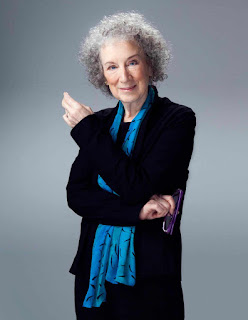by Chris Goff
Lisa Black’s post last Sunday,
Do You Cook Like You Write?, and Robin Burcell’s post on Wednesday,
RECIPE FOR SUCCESS: 5 Basic Rules for Fiction Novelists, got me to thinking—are there actually rules for writing the next bestseller?
Those of us who attend conferences have heard any number of writers offer up their “rules for writing.” There is clearly no shortage of advice. I distinctly remember one workshop where I was sitting in the back beside none-other-than Lee Child. As the speaker presented the first of her Top 10 Rules for Writing, I felt an elbow in my ribs. Then, Lee whispered in my ear, “Chris, do you do that?” When I shook my head “no,” he said, “Me neither.” By Rule #3, my ribs were getting sore. At Rule #4, we slipped out the back door and headed to the bar.
Rules are designed to help. However, more often they paralyze the beginning writer, sweeping them up in an eddy of self-doubt. Did I drop a body in the first fifty pages? Is there a scene goal? A character goal? What is my story arc? Is there enough conflict? Need I go on?
Still, that doesn’t mean there aren’t some rules worth learning. If I’ve learned one thing during the last twenty-plus years, it’s to breathe in the wisdom, and then exhale, retaining only those things which resonate.
On July 16, 2001, Elmore Leonard (author of Get Shorty, Out of Sight, and Justified) offered up his 10 RULES OF WRITING in an essay published by The New York Times, prefacing his list with the following disclaimer:
These are rules I’ve picked up along the way to help me remain invisible when I’m writing a book, to help me show rather than tell what’s taking place in the story. If you have a facility for language and imagery and the sound of your voice pleases you, invisibility is not what you are after, and you can skip the rules. Still you might look them over.
Elmore Leonard’s 10 RULES OF WRITING:
1. Never open a book with weather.
If it’s only to create atmosphere, and not a character’s reaction to the weather, you don’t want to go on too long. The reader is apt to leaf ahead looking for people.
Chris: Think, “It was a dark and stormy night…,” which inspired The Bulwer Lytton Fiction Contest that challenges men, women and children to write the most atrocious opening sentence to a hypothetical bad novel ever written.
2. Avoid prologues.
3. Never use a verb other than “said” to carry dialogue.
The line of dialogue belongs to the character; the verb is the writer sticking his nose in. But said is far less intrusive than grumbled, gasped, cautioned, lied.
Chris: Hissed, spat, snorted and chortled. Once you run across one of these tags in a book, you notice them all.
4. Never use an adverb to modify the verb “said.”
… he admonished gravely. To use an adverb this way (or almost any way) is a mortal sin. The writer is now exposing himself in earnest, using a word that distracts and can interrupt the rhythm of the exchange.
Chris: Am I the only one who missed the word “said?” Still, among the myriad of writers’ rules, using adverbs is highly eschewed.
5. Keep your exclamation points under control.
Chris: Most definitely!!!
6. Never use the words “suddenly” or “all hell broke loose.”
7. Use regional dialect, patois, sparingly.
Once you start spelling words in dialogue phonetically and loading the page with apostrophes, you won’t be able to stop.
Chris: This example from Huckleberry Finn (1884) sort of says it all.
Oh, Huck, I bust out a-cryin’ en grab her up in my arms, en say, ‘Oh, de po’ little thing! De Lord God Amighty fogive po’ ole Jim, kaze he never gwyne to fogive hisself as long’s he live!’ Oh, she was plumb deef en dumb, Huck, plumb deef en dumb—en I’d ben atreat’n her so!
8. Avoid detailed descriptions of characters.
9. Don’t go into great detail describing places and things.
10. Try to leave out the part that readers tend to skip.
My most important rule is one that sums up the 10: If it sounds like writing, I rewrite it.
Leonard’s rules were eventually adapted into an 89-page book (published by William Morrow in 2007), while the original essay inspired a series of essays: rules from other writers. A little more digging turned up a plethora of sage advice offered up over the years by well-known writers. Here are a few of my favorites:
Neil Gaiman: Remember, when people tell you something’s wrong or doesn’t work for them, they are almost always right. When they tell you exactly what they think is wrong and how to fix it, they are almost always wrong.
Margaret Atwood: Hold the reader’s attention. (This is likely to work better if you can hold your own.) But you don’t know who the reader is, so it’s like shooting fish with a slingshot in the dark. What fascinates A will bore the pants off B.
Kurt Vonnegut: Give your readers as much information as possible as soon as possible. To hell with suspense. Readers should have such complete understanding of what is going on, where and why, that they could finish the story themselves, should cockroaches eat the last few pages.
John Steinbeck: Abandon the idea that you are ever going to finish. Lose track of the 400 pages and write just one page for each day, it helps. Then when it gets finished, you are always surprised.
To revert to the cooking analogies, it’s
sage advice indeed!
Writers, do you have a favorite “rule for writing?” Readers, what rules do you wish writers would follow?



















































I had to smile, Chris, when you described sitting next to Lee Child and disagreeing with all the rules laid out in that workshop. I've attended workshops that Lee was leading (at ThrillerFest) where he said he simply doesn't follow rules. In fact, he seems to relish breaking them — for example, starting to write a story and having no clue where his character, Jack Reacher, will end up, how he will solve whatever mystery/crime/problem crops up along the way or how he will get along with a woman he undoubtedly will meet on his journey. And look at Lee's success! For the rest of us, though, I figure that paying attention to at least some of those rules will help us learn to be better writers — we can hope so. Thanks for a great post!
Chris, I love your comments beneath some of EL's rules–and totally agree with you that rules should be more like suggestions. And Karna, I so agree with you about Lee Child. I'd love to have half his innate talent. And though he professes to breaking the rules, he's proof positive that one needs to know them in order to break them.
What a terrific post, Chris. And Robin, I totally agree. One of the things Lee doesn't talk about is that he knew the "rules" of drama before he wrote his first Jack Reacher. He's a brilliant storyteller and plotter, and only some of that is from natural, undeveloped talent. We've all seen tremendous talent in all fields of art and commerce that came to naught because the talented broke rules without the skill to maximize and use what they'd done, nor the wisdom to even see it.
Lee was hilarious in the back of that room. But, I must admit, the rules were lame!
Agreed about knowing the rules before breaking them. Knowing a few basics just saves you time. I learned the hard way, by trial and error–until I found a few great cons to go to, and made a few good friends who won't let me get away with anything.
Thanks, Gayle. I have to say, there are some "rules" that just seem innate–like avoid all adverbs, if possible. When I break that rule it's because I really, really, really want to make a point.
Chris, I have broken almost every one of these rules and yet my latest book has sold close to half a million copies! So the rule is WRITE A GOOD STORY WITH CHARACTERS YOUR READERS CAN IDENTIFY WITH. I always write the book I want to read but isn't already on the shelf!
I love Elmore Leonard's rules–my editor sent me his book as a surprise present–though I do disagree about adverbs. I love adverbs…even with 'said.'